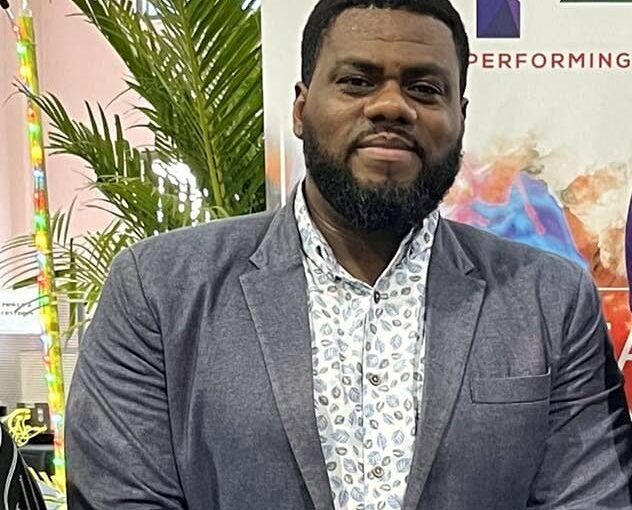By Wanjiru Njoya In this age of relativism, where one often hears reference to “your truth” and “my truth,” there are so many varying...
Vous n'êtes pas connecté
- English
- Français
- عربي
- Español
- Deutsch
- Português
- русский язык
- Català
- Italiano
- Nederlands, Vlaams
- Norsk
- فارسی
- বাংলা
- اردو
- Azərbaycan dili
- Bahasa Indonesia
- Հայերեն
- Ελληνικά
- Bosanski jezik
- українська мова
- Íslenska
- Türkmen, Түркмен
- Türkçe
- Shqip
- Eesti keel
- magyar
- Қазақ тілі
- Kalaallisut ; kalaallit oqaasii
- Lietuvių kalba
- Latviešu valoda
- македонски јазик
- Монгол
- Bahasa Melayu ; بهاس ملايو
- ဗမာစာ
- Slovenščina
- тоҷикӣ ; toğikī ; تاجیکی
- ไทย
- O'zbek ; Ўзбек ; أۇزبېك
- Tiếng Việt
- ភាសាខ្មែរ
- རྫོང་ཁ
- Soomaaliga ; af Soomaali
Rubriques :
 Maroc - EURASIAREVIEW.COM - A la une - 01/Jul 23:55
Maroc - EURASIAREVIEW.COM - A la une - 01/Jul 23:55
Savage Reservations – OpEd
Because we have a need to understand the world around us – some more than others – most people, myself included, tend to look toGeorge Orwell’s1984(published in 1949) as the right model in terms of which one should understand the present drive for suppressive control we see all around us. However, that perspicacious social theorist and universally cognisant thinker,Zygmunt Bauman(Liquid Modernityp. 53) would have us reconsider this, where he offers a revealing comparison between Orwell and Aldous Huxley’s (Brave New World; 1932) alternative visions ofdystopiawhich, in Huxley’s case, one might be forgiven to misidentify, at first, asutopia. Moreover, Bauman’s insights serve as a valuable heuristic as far as comprehending the dystopia-in-the-making of today is concerned. After all, in order to be able to fight your enemies, you have to understand them, particularly if they operate according to Sun Tsu’s familiar aphorism, ‘All warfare is based on deception,’ of which our current enemies are masters. It is our task to expose them. Bauman, referring to the (reception of the) different dystopian visions of Huxley and Orwell as adispute, formulates it thus (p. 53): "The dispute, to be sure, was quite genuine and earnest, since the worlds so vividly portrayed by the two visionary dystopians were as different as chalk from cheese. Orwell’s was a world of shabbiness and destitution, of scarcity and want; Huxley’s was a land of opulence and profligacy, of abundance and satiety. Predictably, people inhabiting Orwell’s world were sad and frightened; those portrayed by Huxley were carefree and playful. There were many other differences, no less striking; the two worlds opposed each other in virtually every detail." Considering the crucial differences between the dystopic visions of these two memorable literary works, it should not pose too much of a problem to decide which one accords more with what we witness around us today, or perhaps whether – in light of the variety of ways in which control is exercised by our would-be masters – we are actually confronted by an amalgam of the two. But in case some readers have forgotten the ‘fictional’ scenario of either of them (or both), allow me to refresh your memories a smidgen. Orwell’s1984is probably better known than Huxley’sBrave New World. Set in a state called Oceania, sometime in the future, it tells the story of Winston Smith, whose work in the Ministry of Truth entails a task that has become all too familiar to us today – think ‘fact-checkers;’ an ironic name, if ever there was one – namely, to make sure that, by falsifying them, historical records do not reflect the truth about the past. His task, by modifying them, is to ensure that the ‘past’ accords with the ideology of the Party. This is the brainwashing society of Big Brother, of Ingsoc, of the Thought Police (which, of all government agencies, is the most feared by citizens), of constant surveillance of every person, monitoring their behaviour for signs of dissatisfaction, or, heaven forbid, of rebellion), and of Doublethink and Newspeak (the language designed to inhibit critical thinking). It is significant to recall that the reign of the Party in1984represents the political dictatorship (of the future) that Orwell wanted to identify and warn against with this novel. The novel presents a totalitarian society that is a model for any totalitarianism that operates by squashing dissent and independent thought (and action), in other words, it represents totalitarian rule that suppresses and controls unruly behaviour by instilling conformity in individuals through fear and, should they revolt – as Winston and his illicit lover, Julia, learn – through psychological and bodily torture, which is aimed at restoring their unquestioned loyalty to the Party. Ubiquitous surveillance – another familiar concept to us today – is central to the rule of the Party (1949, p. 4-5): The blackmoustachio’d face gazed down from every commanding corner. There was one on the house-front immediately opposite. BIG BROTHER IS WATCHING YOU, the caption said, while the dark eyes looked deep into Winston’s own. Down at street level another poster, torn at one corner, flapped fitfully in the wind, alternately covering and uncovering the single word INGSOC. In the far distance a helicopter skimmed down between the roofs, hovered for an instant like a bluebottle, and darted away again with a curving flight. It was the police patrol, snooping into people’s windows. The patrols did not matter, however. Only the Thought Police mattered. Needless to emphasise, critical thinking and action cannot survive, let alone flourish, in this society. The propaganda of the Party is pervasive, and the regularly performed ritual of paying obeisance to Big Brother is a tool to manipulate people into total submission. What gives one hope when reading the novel is that Orwell wrote it in the past tense, with the optimism-inducing implication that Oceania’s totalitarian society no longer existed at the time of the narrative being written. We should remember this. Turning to Huxley’s science-fictionalBrave New World, as hinted earlier, at first blush, it may seem as if it is a utopian, rather than a dystopian novel, the reason being that the citizens of this society appear to be happy and have no problem with conforming to expectations. Do you already detect a clue to it being dystopian in the last sentence, above? The key word is ‘happy.’ Recall that, in 2020, when one visited the website of the World Economic Forum (WEF), one was greeted by a photograph of a young man together with the caption: ‘By 2030 you will own nothing, but [or was it ‘and’?] you’ll be happy.’ It has since been removed – no doubt because of so many people writing critical commentary on it – but it still crops up intermittently on other websites where individuals were prescient enough to save it. Moreover, it resonates withBrave New World, as I shall show. Huxley’s novel was written 17 years before Orwell’s and was probably partly inspired by the horrific events of World War I, where soldiers spent long periods in filthy, unhygienic trenches (and partly by the advent of communism in Russia). One might think of the futuristic society that Huxley depicted inBrave New Worldas the complete antithesis of such abject conditions of squalor: people in this imagined world arehappy(think WEF), conditioned according to ‘neo-Pavlovian’ tenets, and have no problem conforming to what is expected of them. Even the pain of giving birth is eschewed in favour of genetically engineered reproduction; they are conceived and bornin vitro– all too clinical to remind citizens of pain and suffering. In other words,Brave New Worldrepresents a benevolent totalitarian state, if you will pardon the oxymoron. Don’t make the mistake to imagine, from my brief description of a society where conditions are conducive to ‘happiness,’ that citizens in this world are what we would think of as ‘joyful.’ They are not; their ‘happiness’ is more like an induced state of equanimity, with no peaks of excitement or exuberance – if any such occurs, it is immediately counteracted through ‘chemical’ treatment. The point is to avoid extremes of affect and emotion, and the chemical means to achieve this joyless, but satisfied, state, issoma, which individuals take as soon as they tend towards depression, excitement, or anger because it induces a feeling of contentedness, which may vary depending on the amount you take. You can even overdose on it and die. When necessary, police spray unruly crowds withsoma(a word that means ‘body’ or the inebriating juice from an ancient Indian plant). I would not be surprised if Huxley modelledsomaon mescaline or LSD, of which he was a champion – as espoused in his book,The Doors of Perception, on the title of which the name of Jim Morrison’s band,The Doors, was based. Huxley took a note from Plato’s book, as it were, by predestining individuals for different social classes, and from totalitarian thought by not promoting critical thinking or action. The individualistic central character, Bernard Marx (who is an Alpha-Plus in the novel), may suggest an oblique reference to Karl Marx as far as rebelling against his own society goes, and his friend, Lelina Crowne, a fusion of Russian sentiment and noble or royal (Czarist?) inclination, in contrast with the kind of society in which they live. But – as in most societies which are structured strictly in accordance with totalitarian principles (which here assume a surprising character, predicated as they are on thehappinessof its citizens) – there is an ‘outside.’ Actually, there is more than one, if one adds ‘Iceland,’ where individuals such as Bernard (who narrowly avoids it) are exiled to, because they are too ‘self-consciously individual’ and too ‘interesting’ to accept the orthodoxy of thisfauxutopia. The main ‘outside’ has the shape of a ‘Savage Reservation’ where people live, minus the standardin vitroreproduction and the conveyor-belt conditioning that is pervasive in the eponymous ‘brave new world,’ where Henry Ford is regarded as a deity. Having travelled to a Savage Reservation, Bernard and Lelina encounter a savage – later called ‘John’ – whom they find interesting enough to take back to ‘civilisation’ with them. It does not take long before the Savage realises that the society in whichsomareduces people to amoral automata is not for him, and he becomes involved in events that pose serious questions to this society of voluntary conformity, with the consequence that he is perceived (not necessarily favourably) as a symbol of freedom and individuality. It is predictable what this would lead to, but before that point is reached, something occurs wheresomais hastily distributed among a group of khaki-clad Deltas who are heading for a potential confrontation with John, and when he witnesses this, cannot refrain from intervening by urging them to throw away thesomatablets, which he labels ‘horrible poison.’ This results in him being forcibly taken to a hospital, where this scene unfolds (p. 258): ‘But do you like being slaves?’ the Savage was saying as they entered the Hospital. His face was flushed, his eyes bright with ardor and indignation. ‘Do you like being babies? Yes, babies. Mewling and puking,’ he added, exasperated by their bestial stupidity into throwing insults at those he had come to save. The insults bounced off their carapace of thick stupidity; they stared at him with a blank expression of dull and sullen resentment in their eyes. ‘Yes, puking!’ he fairly shouted. Grief and remorse, compassion and duty – all were forgotten now and, as it were, absorbed into an intense overpowering hatred of these less than human monsters. ‘Don’t you want to be free and men? Don’t you even understand what manhood and freedom are?’ Rage was making him fluent; the words came easily, in a rush. ‘Don’t you?’ he repeated, but got no answer to his question. ‘Very well then,’ he went on grimly. ‘I’ll teach you; I’llmakeyou be free whether you want to or not.’ And pushing open a window that looked on to the inner court of the Hospital, he began to throw the little pill-boxes ofsomatablets in handfuls out into the area. For a moment the khaki mob was silent, petrified, at the spectacle of this wanton sacrifice, with amazement and horror. I have probably done enough by way of briefly reconstructing these two novels, for people to grasp where the so-called ‘elites’ (a misnomer, if ever there was one) of today are headed with their attempt at transforming extant society into a global totalitarian state. Although the goal in Huxley’s ‘brave new world’ society is the same as in Orwell’s fictional Airstrip One (to wit, a compliant, if not obedient, conformist society) the means for achieving this are vastly different, and most of us would, if given the choice, choose Huxley’s alternative – even if reading thisreview essayof Brave New World would make you realise that it is a far cry from the world we are (or at least, were, until recently) accustomed to. That does not mean that the ‘elite pigs’ – as inOrwell’sAnimal Farm– would shrink from using draconian,1984-emulating measures to control us today. They may try to create the impression that what they aim for is ‘gentle control,’ as in Huxley’s novel, but make no mistake: as they have already shown during theplandemic, they are every bit as cruel as Orwell’s Big Brother. In other words, what we face today may seem to be modelled onBrave New World, but at best it is a fusion of that with1984. Recall that I wrote about the ‘outside’ of the pseudo-utopian ‘civilisation’ inBrave New World, above. There are other novels that work with the same literary device, such as Michel Huellebecq’sThe Possibility of an Island, and J.M. Coetzee’sWaiting for the Barbarians– both of these being profound literary works, in my judgement – but more pertinent for my present purposes is the fact that Bill Gates on more than one occasion that those among us who refused to comply with the measures they have in store for us would be ‘excluded from society.’ I don’t know about you, but as for myself, I wouldmuchrather beexcludedfrom a totalitarian society – even one emulating Huxley’ssoma-addicted pseudo-utopia – than to beincludedin 15-minute cities, the digital prison of CBDCs, a regime of regular (non-) ‘vaccinations,’ restrictions on travel, sentenced to eat insects (while the ‘elite’ parasites enjoy their steak and lamb cutlets) and surveillance at multiple levels, including the internet and the physical level, where AI-robots will keep the populace in check. But don’t forget: ‘You will be happy!’ I wonder whether they will use a variant of soma, or if they will keep the compliant herd ‘happy’ with ‘drugs and computer games.’ Whatever the case may be, make no mistake – unless we confront and fight these psychopaths with everything at our disposal, we shall all end up either in their obediently compliant perversion of a society, or in one of the internment camps already being built in all 50 states in America ‘for non-compliant dissidents,’ or – my personal preference – a ‘Savage Reserve’ á la Brave New World, where we can live as humans, and not ‘trans-humans.’ This article was published at Brownstone Institute
Articles similaires
16 Things Individuals Can Do To Help Bring America Together – OpEd
By Lawrence W. Reed Americans are angry and divided—perhaps more than at any time since the Civil War. Holding strong opinions, especially in...
Slash National Assembly Members Jumbo Salaries, Cut Cost Of Governance, Pay Minimum Wage, Bishop Ezeokafor Urges Tinubu
‘Even N100, 000 is too small to Meet Basic Needs’ By Mmaduabuchi OnwumeluThe Catholic Bishop of Awka Diocese, His Lordship, Most...
Is social media making you unhappy? The answer is not so simple
You may have seen headlines that link social media to sadness and depression. Social media use goes up, happiness goes down. But recent studies...
Mission Creep: How The Police State Acclimates Us To Being Modern-Day Slaves – OpEd
Like the proverbial boiling frogs, the government has been gradually acclimating us to the specter of a police state for years now: Militarized...
New Argentine envoy uses sports, culture to bring unity
Gustavo Martinez Pandiani, newly-appointed Argentine ambassador to TT, wants to help build the relationship between the two countries through sports...
Public urged not to judge murdered nurse Sadna Gangoo
THREE pastors and the aunt of murdered beauty queen Sadna Ramsaroop Gangoo urged the public not to judge her. The stirring appeal was made at...
What’s wrong with contract labour
Ahead of Wednesday's Labour Day celebrations, a man reading his paper out loud in a St Ann's maxi last week said, "Labour Day is coming up, so the...
Activists discuss way forward for creative sector
CULTURAL activists have shared differing opinions about the strategies that can be implemented to make Trinidad and Tobago’s creative sector more...
Islam And Judaism On Atonement – OpEd
On the Day of Atonement-Yom Kippur Jews world wide pray not at the usual three daily services, but [like Muslims] at five services, which all...
Les derniers communiqués
-
Adobe Brings Conversational AI to Trillions of PDFs with the New AI Assistant in Reader and Acrobat
Adobe - 21/02/2024
-
Laura Frigenti takes the Helm as Chief Executive Officer of the Global Partnership for Education
Global Partnership for Education - 05/12/2022





